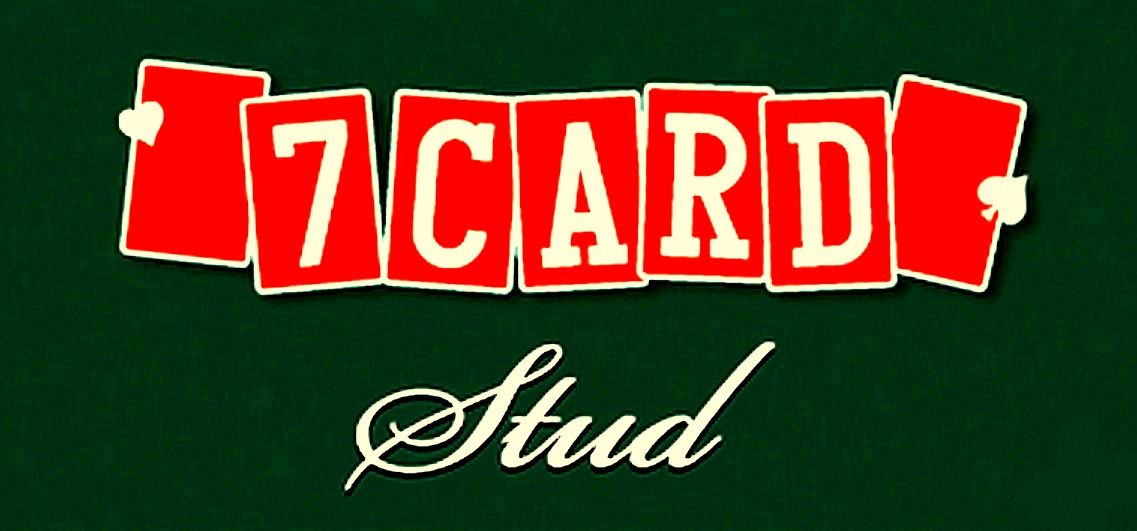Seven-Card Stud Poker Rules
Before the Texas hold’em poker boom a few years ago, seven-card stud poker rules were one of the most popular poker variants in the United States. The game can be played with two to eight players, and the main difference between seven-card stud and Texas hold’em or Omaha is that seven-card stud does not involve a flop, and in most cases, no community cards are used at all.
Getting Know about Seven-Card Stud Poker Rules
To begin each hand, a player is dealt the first two cards face down and then a third face up, as shown in the image above. This is commonly known as Third Street. The two face-down cards are known as “hole cards,” while the face-up card is known as the “door card.”
Based on these three cards of seven-card stud poker rules, one would decide whether or not to continue with the hand. Starting hands are important in seven-card stud, as they are in any Pkv Games variation. Each player receives seven cards, three of which are dealt face down and four of which are dealt face up.
From these seven cards, the player must choose the best five-card combination. The hand rankings are identical to those found in Texas hold’em or Omaha, with a royal flush being the best possible hand and a high card hand being the worst (no pair).
Seven-Card Stud Poker Rules : Antes Betting

In Texas hold’em and Omaha poker, the blinds are the forced bets, whereas the antes are the forced bets placed by every player before receiving any cards. Consider a ten- or twenty-euro seven-card stud game with a one-euro ante and a five-euro bring-in.
Each player who wants to be dealt in to receive a hand must post the one euro ante, creating a pot worth competing for. After that, the first three cards are dealt to each player, and it is determined which player must post the bring-in.
In seven-card stud poker rules, the player with the lowest-ranking door card must post the 5 euro minimum bring-in, but has the option to “complete” the bet by posting 10 euro.
Seven-Card Stud Poker Rules : Further Betting
The betting then moves clockwise around the table, with each player having the option to call, raise, or fold. If the first player who helped to bring in only posts a create, the other players may finish the bet to 10 euro as the first raise.
When the betting is finished, each player left in the hand is dealt a fourth card, which is referred to as fourth street.
Seven-card stud poker rules differ from games in which a button defines where the action begins. In seven-card stud, the player with the highest-ranking hand is the first to act from fourth street on.
Seven-card stud poker rules are most often played as a limited game. Continuing with our 10 or 20 euro seven-card stud example, the betting limits on third and fourth street would be the lower limit, or 10 euro in this case. The limits increase to 20 euros on the fifth, sixth, and seventh streets.
Don’t miss information on several online casino slots that provide poker games with the best service. Before registering for an online casino, our advice is to understand how to claim a bonus, so that you can easily take advantage of the bonus.
Example of Seven-Card Stud Poker Rules
If a player pairs his door card on fourth street, the opening player can now bet double the small limit or the larger limit. For example, if a player starts with an ace and gets another ace on fourth street, he or she may open with a bet of 20 euro rather than 10 euro. This one-of-a-kind betting rule applies only to the high version of seven-card stud, not the split-pot version. You can also play online poker on several alternative links.
Conclusion
In seven-card stud poker rules, It is critical to pay close attention to your opponents’ cards. If you have a straight draw with the King, Queen, Jack, and 10, but three aces are already on the table, you are only drawing to one ace and the remaining nines in the deck. If a player folds the case ace and you are unaware of it, you may be overestimating your chances in the hand. / Dy
Read More: Malta Gaming License: Highest Standard in The Gambling Industry
